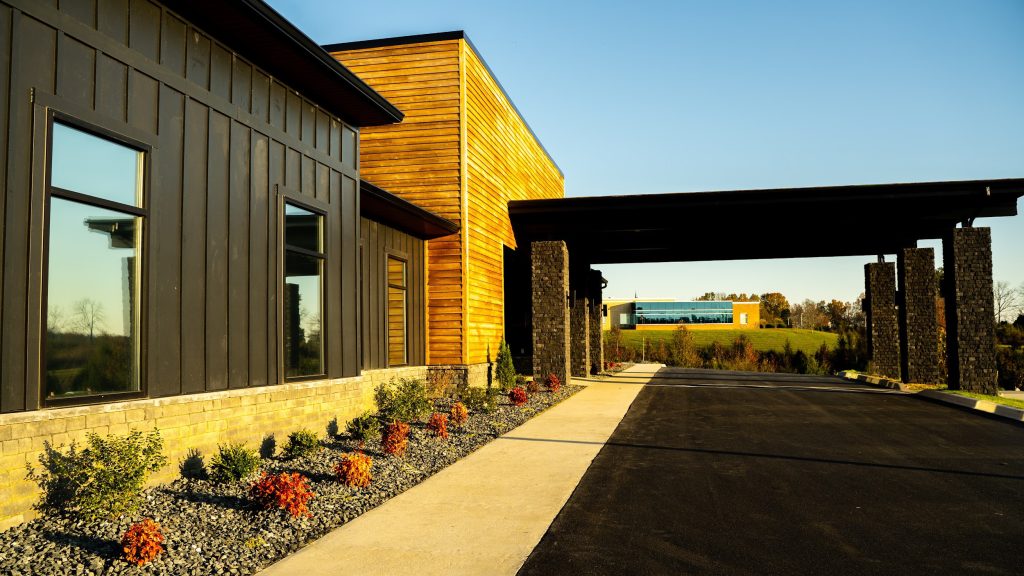Serenity Ranch Recovery
Serenity Ranch Recovery is a Texas-based addiction treatment center located on a tranquil ranch in Sulphur Springs. The facility provides evidence-based, trauma-informed care in a peaceful environment that encourages holistic recovery and personal renewal. Serenity Ranch blends clinical expertise with the restorative power of nature. Clients receive individualized treatment plans combining traditional psychotherapy with experiential…
Robert Alexander Center for Recovery
The Robert Alexander Center for Recovery in Mount Washington, Kentucky, provides evidence-based addiction treatment in a peaceful, modern environment. Known for compassionate care and same-day admissions, the center integrates detox, therapy, and long-term recovery planning. Built on ten acres of quiet countryside, the facility combines clinical expertise with luxury amenities to create a comfortable and…
Why Trust ExecutiveRehabs
Since 2003, our expert team has built comprehensive resources on executive rehab centers that you can trust to find the right treatment for you.
Transparency and accuracy matter, and we believe you deserve nothing short of the best possible experience when reaching out for support.
FAQs on Executive Rehab
The Landscape for Executive Addiction Treatment Centers in Kentucky
Kentucky’s economy centers on manufacturing, healthcare, bourbon, and logistics - fields where long hours and cultural acceptance of alcohol can normalize stress-related substance use.
Executives in these sectors often face performance pressure and limited privacy, making them reluctant to seek traditional rehab.
Distinct Features of Executive Rehabs
Executive rehabs in Kentucky balance privacy and accountability.
Facilities like the Robert Alexander Center integrate high-speed connectivity for remote work, private accommodations, and trauma-informed therapy. Programs typically offer:
-
Discreet admissions respecting HIPAA and 42 CFR Part 2 confidentiality standards.
-
Flexible treatment schedules (partial hospitalization or telehealth follow-ups).
-
Integrated mental health care for anxiety, depression, or burnout.
-
Holistic supports such as equine therapy or mindfulness training.
According to SAMHSA, 7.7% of Kentucky adults met criteria for a substance use disorder in 2022, yet professionals are underrepresented in treatment enrollment.
Barriers include social stigma, job loss fears, and a lack of specialized programs.
Treatment Availability and Challenges
Kentucky has over 500 licensed addiction facilities, but only a small fraction offer private or executive programs.
Most executive-level options cluster near Louisville and Lexington, with hybrid models allowing partial inpatient treatment combined with outpatient flexibility.
Challenges include:
-
Scarcity of high-end inpatient facilities comparable to national luxury rehabs.
-
Limited insurance acceptance among boutique centers, driving higher cash-pay rates ($20,000–$60,000 per month).
-
Confidentiality concerns in smaller communities.
-
Workforce burnout in executive-heavy sectors such as healthcare administration and law.
Kentucky’s Office of Drug Control Policy has expanded employer-based recovery-friendly workplace initiatives, but executive-focused treatment remains limited.
Regional and Out-of-State Options
Executives from Kentucky often travel to nearby states offering broader luxury networks. Tennessee (e.g., Magnolia Ranch Recovery), Georgia, and Florida are preferred due to privacy, climate, and flight accessibility.
Facilities in these states often feature private villas, on-site chefs, and post-treatment executive coaching—appealing for relapse prevention.
Some executives pursue treatment in remote states or internationally (Arizona, California, Costa Rica) to minimize recognition risk.
However, Kentucky’s lower cost of living and emerging boutique centers make local treatment increasingly viable.
Legal and Privacy Framework
Kentucky providers adhere to federal 42 CFR Part 2, ensuring substance-use treatment confidentiality.
Additionally, state law (KRS § 222.005 et seq.) prohibits disclosure of treatment records without written consent, reinforcing executive privacy protections.
Many centers implement anonymous billing and off-site therapy options.
Evidence-Based and Holistic Integration
Effective executive rehab combines evidence-based methods—Cognitive Behavioral Therapy (CBT), Medication-Assisted Treatment (MAT), and contingency management—with experiential therapies like adventure therapy or equine work.
These integrated approaches improve retention and relapse outcomes, particularly among high-functioning professionals who require personalized engagement.
Why Executive Treatment Works
Research from the Journal of Substance Abuse Treatment shows that individualized and occupation-tailored programs improve adherence rates among professionals by 30–40%. Kentucky’s smaller facilities can provide personalized attention often unavailable in larger national centers.
The Future Outlook for Executive Treatment Centers in Kentucky
Kentucky’s recovery infrastructure continues to evolve with expanding telehealth legislation and employer recovery programs.
As stigma declines, hybrid executive models combining luxury amenities with clinical rigor are likely to grow, particularly near urban and equestrian regions.
Sources & Citations
-
Substance Abuse and Mental Health Services Administration (SAMHSA). National Survey on Drug Use and Health: Kentucky, 2022. https://www.samhsa.gov/data/
-
Kentucky Office of Drug Control Policy. 2024 Annual Report. https://odcp.ky.gov
-
Kentucky Revised Statutes §222.005–222.991 (Substance Use Disorder Treatment Confidentiality). https://apps.legislature.ky.gov/law/statutes/
-
Journal of Substance Abuse Treatment, Vol. 149, 2024: Occupational Tailoring and Outcomes in Addiction Recovery.
-
National Institute on Drug Abuse (NIDA). Workplace Substance Use Disorders: Trends Among Professionals.https://nida.nih.gov
-
American Psychological Association. Stress and Addiction in High-Performing Professionals. https://www.apa.org


